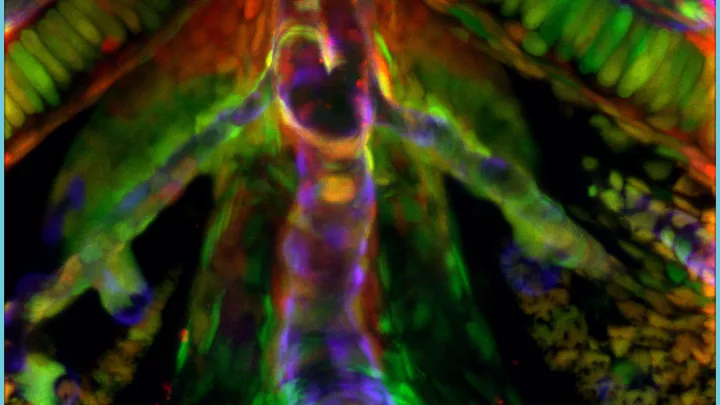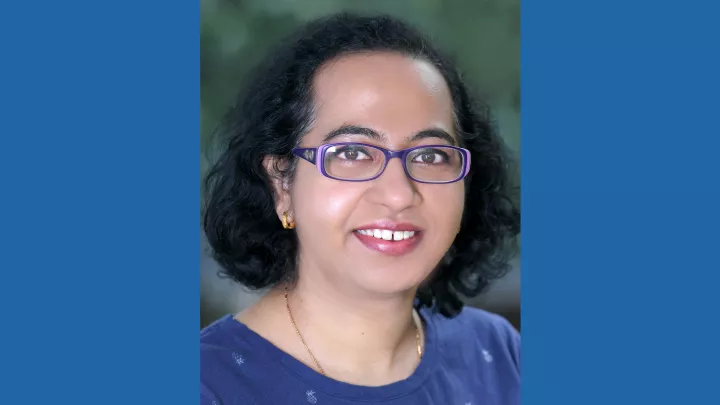
Brian Dias, PhD
Dr. Dias grew up in India and received his PhD from the University of Texas at Austin. Over the years, his research has investigated the neurobiology underlying stress, depression, social behavior and fear, in rats, lizards, birds, fruit flies, and mice. While most of his current work uses mice, generous collaborators have enabled Dr. Dias and his team to begin investigating the biological basis of behavioral states and neuropsychiatric disorders, in non-human primates, and humans.
Dr. Dias’ research seeks to understand how mammalian neurobiology, physiology and reproductive biology is impacted by stress or trauma, and how parental legacies of stress or trauma influence offspring. Armed with this understanding, Dr. Dias and his team aim to devise therapeutic interventions to ameliorate the effects of stress or trauma in both, ancestral and descendant populations. Toward this goal, Dr. Dias uses molecular, cellular, genetic, epigenetic, physiological, and behavioral approaches to investigate how the biology of an organism and its responsiveness to stress or trauma is influenced by micro- (genome, epigenome and hormones), and macro-environments (ancestral, in utero and post-natal experiences). Among other outlets, Dr. Dias’ work has been featured in Nature, on the BBC. Most recently, Dr. Dias was quoted in articles about the legacy of trauma (BBC)and the neurobiology of family separation (BrainFacts), and gave a TEDx talk on Halting Legacies of Trauma (TEDx).
In 2017, Dr. Dias was awarded a CIFAR Azrieli Global Scholar Award (competitive awards given to exceptional early career investigators from around the world by the Canadian Institute for Advanced Research (CIFAR), and in 2020 he was named a Fellow in CIFAR’s Child & Brain Development Program. In 2019, Dr. Dias was selected to be part of the Young Leader network at the Science & Technology in Society Forum in Kyoto, Japan (an invitation-only forum that includes world leaders and diplomats discussing how science and technology can address contemporary roadblocks to human progress).
In addition to his research, Dr. Dias is interested in scientific innovation and education. This interest has seen Dr. Dias participate in the 2016 Sci-Foo Camp – an invitation-only ideas festival that is often described as a mini-Woodstock of ideas, held at Google, and co-organized by Google, O’Reilly Media, Nature and Digital Science. Dr. Dias is a faculty member of the Emory Tibet Science Initiative, teaches Neuroscience to Tibetan Buddhist monastics, and participated on a panel discussing “Consciousness” with scholars that included the Dalai Lama.
Education
Ph.D. (Neuroscience), University of Texas at Austin (Austin TX, USA)
M.Sc. (Molecular Biology), Tata Institute of Fundamental Research (Mumbai, India)
Accomplishments
2015 Reves Center Distinguished Lecturer in International Studies (The College of William and Mary)
2016 National Academy of Sciences Kavli Fellow
2016 Alexander von Humboldt Fellow
2016 Emory University Research Council Award
2016 Yerkes Pilot Project Award
2016 Participant at 2016 Sci-Foo Camp – an invitation-only ideas festival co-organized by Google, O’Reilly Media, Nature and Digital Science often described as a mini-Woodstock of ideas.
2017 FAPESP-SPRINT Award (São Paolo Researchers in International Collaboration) [collaboration with Dr. Newton Canteras at University of São Paolo]
2017 CIFAR Azrieli Global Scholar (CIFAR = Canadian Institute of Advanced Research)
2019 Selected to be part of the Young Leader network at the Science & Technology in Society Forum in Japan to discuss how science and technology can address contemporary roadblocks to human progress with world leaders, diplomats, and academics.
2020 Appointed Fellow in CIFAR Child & Brain Development Program
Publications
Venkataraman A, Brody N, Reddi P, Guo J, Rainnie DG, Dias BG (2019) Modulation of fear generalization by the zona incerta. Proc Natl Acad Sci USA 116(18):9072-9077.
Aoued HS, Sannigrahi S, Doshi N, Morrison FG, Linsenbaum H, Hunter S, Walum H, Baman J, Yao B, Jin P, Ressler KJ, Dias BG (2019) Reversing behavioral, neuroanatomical, and germline influences of intergenerational stress. Biological Psychiatry 85(3): 248-256.
Taylor WW, Imhoff BR, Sathi ZS, Garza KM, Dias BG (2021) Contributions of glucocorticoid receptors in cortical astrocytes to memory recall. Learning & Memory 28(4): 126-133.
Sangpo L, Dhuldhoya M, Dhuldhoya N, Dias BG (2021) Fostering respectful and productive conversations: lessons learned from debating courtyards in Tibetan Buddhist monasteries. Front Commun. doi.org/10.3389/fcomm.2021.755445
Research
Mission: To make significant contributions to the understanding of legacies of stress so that they can be halted.
We aim to do so by
- being creative and collaborative in our conceptual and technical approaches,
- conducting and communicating our research with integrity and clarity, and
- providing a collegial and caring training environment for the next generation of neuroscientists.
Vision: Our research seeks to understand how mammalian neurobiology, physiology and reproductive biology is impacted by stress or trauma, and how parental legacies of stress or trauma influence offspring. Armed with this understanding, we aim to propose and test strategies that could halt legacies of stress or trauma from perpetuating across generations.
Approach: We use molecular, cellular, genetic, epigenetic, physiological, and behavioral approaches to investigate how the biology of an organism and its responsiveness to stress or trauma is influenced by micro- (genome, epigenome and hormones), and macro-environments (ancestral, in utero and post-natal experiences).


